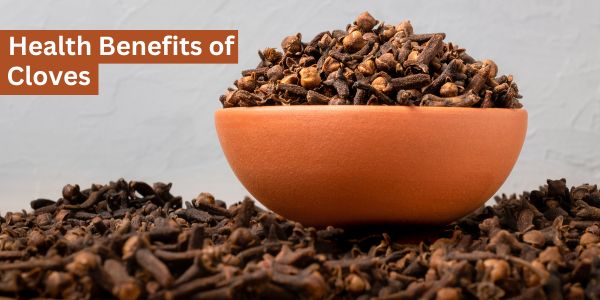Introduction
Let’s talk bones. Not the creepy skeleton-in-a-haunted-house kind, but the strong, sturdy scaffolding that keeps you upright and mobile every single day. Your bones are quite literally the backbone of your health, and taking care of them isn’t just for the elderly or the injury-prone. Whether you’re 25 or 75, your bones are quietly doing the heavy lifting, so it’s high time we gave them a little TLC, don’t you think?

In this write-up, we’re diving into natural, no-fuss, no-prescription-needed strategies that can help you build and maintain strong, healthy bones. We’re talking real-deal, practical tips you can start using today, just simple lifestyle and dietary changes that pack a punch. And the best part? No pharmacy runs or supplement overload necessary.
But first, because we believe in the power of good information, know that everything you’re about to hear has been thoroughly fact-checked and reviewed by trusted health professionals. No fluff, no fads, just bone-solid advice.
1. Boost Your Calcium and Magnesium Intake

Let’s talk about the dynamic duo of bone health: calcium and magnesium. Think of them like Batman and Robin, but for your skeleton.
Calcium, the headliner of the show, is the major building block of your bones. It’s like the bricks in a house, strong, supportive, and foundational. Without enough of it, your bones start to resemble that one Jenga tower teetering just before collapse. Fragile, breakable, and one wrong move away from disaster.
According to the National Institutes of Health (NIH), 99% of the calcium in our bodies is stored in bones and teeth.
Now, here’s the plot twist most people miss: magnesium is the silent hero behind the scenes. Without it, calcium can’t do its job properly. Magnesium activates vitamin D (which helps absorb calcium), so without enough magnesium, it’s like trying to build a house with bricks but no cement.
A 2013 study published in Nutrients highlighted that magnesium intake is positively associated with bone mineral density (BMD) in both men and women.
A Framingham Offspring Study showed that participants who consumed higher magnesium had greater hip bone density, particularly in women.
So, how do you get more of these bone-loving nutrients into your body? Eat leafy greens, nuts, seeds, whole grains, dairy, and fortified plant milks. And here’s the golden rule: balance is everything. Too much calcium without enough magnesium can lead to calcium deposits in places you really don’t want them (like your kidneys and arteries).
Aim for a 2:1 calcium-to-magnesium ratio, like 1,000 mg of calcium to 500 mg of magnesium per day. Your bones (and your heart) will thank you.
2. Eat Foods Rich in Vitamin K

Vitamin K doesn’t get the spotlight often, but it’s the unsung hero of the bone-building world. If calcium is the bricks and magnesium is the cement, then vitamin K is the construction manager who tells everyone where to go.
Vitamin K1 helps activate osteocalcin, a fancy little protein that binds calcium to your bones, basically helping it stick where it belongs. No K1? That calcium might as well be a tourist with no map, lost and ineffective.
Then there’s vitamin K2, the traffic cop of calcium. It helps direct calcium to the bones and teeth instead of letting it roam free and clog up your arteries. Not a fan of blocked arteries? Yeah, us neither.
A 2006 review in Nutrition journal found that vitamin K2 supplementation reduced vertebral fractures by 60%, hip fractures by 77%, and non-vertebral fractures by 81%.
Japanese women consuming natto, a fermented soy product rich in K2, have significantly lower rates of osteoporosis, according to a study published in Osteoporosis International.
So stock up on leafy greens (for K1) and fermented foods like natto, cheese, or even some meats and egg yolks (for K2). It’s like feeding your bones a green smoothie and a side of aged cheese. Yum.
Also Read: 9 Natural Ways to Remove Plaque & Tartar Buildup
3. Cut Back on Caffeine and Alcohol

I know, I know, don’t shoot the messenger! But here’s the thing: while that third cup of coffee might help you survive your 9 a.m. meeting, it might also be sneakily sapping calcium from your bones. Yep, caffeine can interfere with calcium absorption and even increase calcium excretion through your urine. Meaning, your latte habit could be leaching the very minerals your bones need to thrive.
According to a 2001 study published in American Journal of Clinical Nutrition, high caffeine intake was associated with lower bone density in elderly women, especially those with low calcium intake.
Now let’s talk alcohol. Sure, an occasional glass of wine can be lovely, but if your “just one drink” turns into “where did the bottle go?” your bones could be suffering the consequences. Alcohol can mess with how your body absorbs calcium and vitamin D, and that’s a recipe for weak, brittle bones. Plus, being tipsy raises your risk of falls. And guess what’s not great for brittle bones? Yep. Falls.
A meta-analysis from 2015 found that heavy alcohol use increases the risk of osteoporosis and fractures by 34%.
So, decaf it a bit, sip smart, and think of moderation as your new best friend. Your bones will high-five you from the inside.
4. Maintain a Healthy Weight

Carrying extra weight is like giving your bones a 24/7 piggyback ride—and they’re not thrilled about it. Too much weight puts pressure on your joints and spine, especially the ones that already work overtime—like your hips and knees. Over time, it wears them down like sandpaper on wood.
But being underweight isn’t any better. Think of it like this—your bones need a bit of body fat to help produce estrogen, a hormone that plays a huge role in keeping bones strong. If you don’t have enough body fat, your estrogen drops, and your bones start waving a little white flag.
A 2014 study in The Journal of Clinical Endocrinology & Metabolism showed that both underweight and overweight individuals had a higher risk of fractures due to low bone density and hormonal imbalances.
The sweet spot? Maintaining a weight that’s right for your body type through balanced eating and consistent exercise. Not just any exercise—weight-bearing exercise (we’ll get to that in a second).
5. Get Plenty of Protein

Protein isn’t just for gym rats and bodybuilders; it’s a cornerstone of bone health. Your bones are made up of collagen, and collagen is made up of, you guessed it, protein.
Without enough protein, your body doesn’t have the raw materials it needs to maintain and repair bone tissue. Plus, protein helps with calcium absorption and keeps your muscles strong, which in turn supports your bones.
Research published in The American Journal of Clinical Nutrition (2009) found that adequate protein intake enhances calcium absorption and bone metabolism, particularly in the elderly.
Eat lean meats, eggs, dairy, legumes, and nuts. Your bones are basically little construction workers, and protein is the lunchbox fuel they need to keep hammering away.
6. Quit Smoking

If your bones could talk, they’d probably scream, “Put that cigarette down!” Smoking introduces toxins like nicotine and cadmium into your system, chemicals that mess with your body’s ability to form new bone and absorb essential nutrients.
Long-term smokers are at a much higher risk of osteoporosis and fractures. And when you do get injured, your bones take longer to heal—thanks to poor circulation and reduced oxygen flow.
A landmark study in The Lancet (1997) showed that smokers lose bone density faster than non-smokers, and women who smoke are at twice the risk for hip fractures.
The Nurses’ Health Study tracked over 100,000 women and found that long-term smoking was significantly linked to increased fracture risk.
Bottom line? Smoking isn’t just a lung thing. It’s a bone thing too. Quitting might just be one of the best gifts you can give your skeleton.
7. Stress Less

We all know stress is bad for our mental health, but did you know it’s also a bone breaker? Chronic stress increases cortisol, a hormone that, in high amounts, can cause bone loss. Not to mention it can fuel inflammation, which messes with the balance of bone-building and bone-breaking cells.
Also Read: 4 Symptoms of Gallbladder Problems You Must Know
And let’s be real, when we’re stressed, we’re more likely to slump, clench, tense up, and develop bad posture. All of which puts more strain on our bones and joints.
A 2020 study published in Psychosomatic Medicine found that individuals with high stress had lower bone density scores.
So take a deep breath, schedule that walk, call a friend, journal it out, whatever helps you chill. Because a calm mind = stronger bones.
8. Move That Body

Bones are like muscles, they thrive on movement. Weight-bearing exercises (like walking, hiking, dancing, and resistance training) send a signal to your bones that they need to toughen up and adapt.
Think of it like this, every time you walk or lift something, you’re gently challenging your bones. And they rise to the occasion. Over time, that regular mechanical stress helps make them denser and stronger.
According to the National Osteoporosis Foundation, weight-bearing and resistance exercises stimulate bone formation and slow age-related bone loss.
A 12-month randomized trial in JAMA Internal Medicine showed that postmenopausal women who did strength training twice per week had significantly increased spine and hip bone density.
Plus, regular exercise improves your balance, flexibility, and coordination—helping prevent falls and injuries. Which is a huge win as we age.
9. Prioritize Good Sleep

Surprise! Sleep isn’t just for energy and mental clarity, it’s also prime time for your body to repair and rebuild your bones. Think of it like overnight maintenance at a construction site. Quiet, efficient, and crucial.
Studies show that sleep disturbances may be a risk factor for osteoporosis.
A 2019 study in Osteoporosis International found that women who slept fewer than 6 hours per night had significantly lower bone density at the spine and hip.
During sleep, your body releases growth hormones, regulates your weight, and calms inflammation—all key ingredients for bone health.
So don’t skimp on your Z’s. Aim for 7 to 9 hours a night, and make sure it’s quality sleep. Your bones are working the night shift—give them the rest they deserve.
Conclusion
So there you have it, nine powerful, natural ways to build stronger bones without popping a single pill. Remember: it’s never too early (or too late) to give your skeleton some love.
Maintaining strong, healthy bones is essential for a vibrant and active life. By focusing on proper nutrition, regular exercise, adequate rest, and mindful lifestyle habits, you can naturally support your bone health for years to come.




